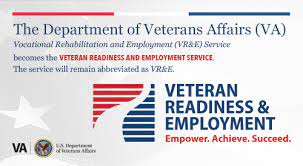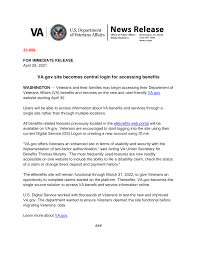Vocational Rehabilitation and Employment (VR&E) is a program offered by the U.S. Department of Veterans Affairs (VA) that aims to assist veterans with service-connected disabilities in finding and maintaining suitable employment. This program, commonly referred to as Voc Rehab VA, provides a range of services and resources designed to help veterans overcome barriers and achieve their vocational goals.
The primary objective of Voc Rehab VA is to enhance veterans’ employability by providing them with comprehensive vocational rehabilitation services. These services include career counseling, job training, education assistance, resume building, job placement assistance, and support for self-employment or entrepreneurship endeavors.
One of the key features of this program is the Individualized Rehabilitation Plan (IRP). Each veteran participating in Voc Rehab VA works closely with a Vocational Rehabilitation Counselor (VRC) who assesses their unique needs, interests, skills, and limitations. Together, they develop an IRP that outlines the specific goals and steps needed to achieve successful employment outcomes.
Financial assistance may also be available through Voc Rehab VA to cover the costs associated with training programs or education necessary for achieving employment goals. This can include tuition fees, books, supplies, equipment, licensing fees, certification exams, and even monthly subsistence allowances for eligible veterans during their training period.
In addition to the direct support provided by Voc Rehab VA counselors and financial assistance options, the program also offers various specialized tracks tailored to specific circumstances. For example, there are tracks specifically designed for veterans with severe disabilities or those transitioning from military service to civilian employment. These tracks provide additional resources such as assistive technology devices or accommodations in the workplace.
To access Voc Rehab VA services, veterans must meet certain eligibility criteria. Generally speaking, veterans must have a service-connected disability that presents an employment handicap or be within 12 years from their separation from active duty military service.
It is important for veterans who believe they may benefit from Voc Rehab VA services to reach out to their local VA office or visit the official VA website to initiate the application process. Once enrolled, veterans can expect personalized support and guidance from dedicated Vocational Rehabilitation Counselors who are well-versed in the unique challenges faced by veterans with service-connected disabilities.
The Voc Rehab VA program has helped countless veterans across the nation regain their independence, find meaningful employment, and rebuild their lives after military service. By providing comprehensive vocational rehabilitation services and ongoing support, it serves as a vital resource for veterans seeking to overcome barriers and achieve their career goals.
Frequently Asked Questions about Voc Rehab VA: Applying, Services, Eligibility, Approval Time, and Job Placement Assistance
- How do I apply for Vocational Rehabilitation and Employment (VR&E) services through the VA?
- What types of services are offered by VR&E?
- What are the eligibility requirements for VR&E services?
- How long does it take to get approved for VR&E services?
- What type of job placement assistance is available through VR&E?
How do I apply for Vocational Rehabilitation and Employment (VR&E) services through the VA?
To apply for Vocational Rehabilitation and Employment (VR&E) services through the VA, follow these steps:
- Determine eligibility: Ensure that you meet the basic eligibility criteria for VR&E services. Generally, you must be a veteran with a service-connected disability that presents an employment handicap or be within 12 years from your separation from active duty military service.
- Gather necessary documents: Collect any relevant documentation that supports your eligibility, such as your DD-214 form, medical records related to your service-connected disability, and any other supporting documents.
- Contact your local VA office: Reach out to your nearest VA regional office or VetSuccess on Campus (VSOC) counselor to initiate the application process. You can find their contact information on the official VA website or by calling the VA’s general information hotline at 1-800-827-1000.
- Schedule an appointment: Once you get in touch with the VA office, schedule an appointment with a Vocational Rehabilitation Counselor (VRC). During this appointment, the VRC will assess your eligibility and discuss your vocational goals and needs.
- Complete application forms: The VRC will provide you with the necessary application forms and guide you through their completion. These forms may include the Application for Vocational Rehabilitation (VA Form 28-1900) and other related documents.
- Submit supporting documentation: Along with the completed application forms, submit any supporting documentation requested by your VRC to verify your eligibility and support your case.
- Attend evaluations if required: Depending on your specific circumstances, you may need to undergo medical evaluations or assessments to determine suitable vocational goals and services needed.
- Develop an Individualized Rehabilitation Plan (IRP): Work closely with your VRC to develop an IRP tailored to your vocational goals and needs. This plan will outline the specific services, training programs, or educational assistance required for achieving successful employment outcomes.
- Begin VR&E services: Once your IRP is approved, you can start accessing the VR&E services outlined in your plan. These may include career counseling, job training, education assistance, job placement support, and other necessary resources.
Remember that each veteran’s situation is unique, and the application process may vary slightly depending on individual circumstances. It is recommended to consult with a Vocational Rehabilitation Counselor at your local VA office for personalized guidance throughout the application process.
What types of services are offered by VR&E?
Vocational Rehabilitation and Employment (VR&E) offers a range of services to assist veterans with service-connected disabilities in achieving their employment goals. These services are designed to address the individual needs and circumstances of each veteran participating in the program. Here are some of the key services offered by VR&E:
- Career Counseling: VR&E provides personalized career counseling to help veterans explore their vocational interests, skills, and abilities. Vocational Rehabilitation Counselors (VRCs) work closely with veterans to identify suitable career paths and develop an Individualized Rehabilitation Plan (IRP) tailored to their specific goals.
- Job Training: VR&E offers various job training programs to enhance veterans’ skills and employability. This can include on-the-job training, apprenticeships, vocational or technical training, or other skill-building programs that align with the veteran’s career goals.
- Education Assistance: Veterans may be eligible for educational assistance through VR&E to pursue a degree or certification program that will enhance their employment prospects. This can cover tuition fees, books, supplies, and other necessary educational expenses.
- Resume Building and Interview Skills: VR&E provides guidance on resume building and interview preparation to help veterans present themselves effectively during job searches. This includes assistance in highlighting transferable skills gained from military service and translating them into civilian job qualifications.
- Job Placement Assistance: VR&E offers support in finding suitable employment opportunities for veterans. VRCs may provide job leads, connect veterans with potential employers, assist in networking efforts, and offer guidance throughout the job application process.
- Self-Employment or Entrepreneurship Support: For veterans interested in starting their own businesses or pursuing self-employment opportunities, VR&E provides resources and guidance on business planning, financing options, marketing strategies, and other essential aspects of entrepreneurship.
- Assistive Technology and Accommodations: For veterans with disabilities requiring assistive technology devices or workplace accommodations, VR&E can provide assistance in identifying and obtaining the necessary tools or modifications to ensure a successful transition to employment.
- Rehabilitation Services: VR&E may offer additional rehabilitation services, such as medical or psychological evaluations, counseling, and therapy, to address specific barriers that veterans may face in their pursuit of employment.
It’s important to note that the specific services provided by VR&E can vary based on individual needs, eligibility criteria, and available resources. Veterans are encouraged to reach out to their local VA office or visit the official VA website for comprehensive information on the services offered by VR&E and how to access them.
What are the eligibility requirements for VR&E services?
To be eligible for Vocational Rehabilitation and Employment (VR&E) services, also known as Voc Rehab VA, offered by the U.S. Department of Veterans Affairs (VA), veterans must meet certain criteria. Here are the general eligibility requirements:
- Veteran Status: You must be a veteran who has served on active duty in the U.S. Armed Forces, and you must have received a discharge other than dishonorable.
- Service-Connected Disability: You must have a service-connected disability that presents an employment handicap. This means that your disability should affect your ability to secure or maintain suitable employment.
- Vocational Rehabilitation Need: The VA will determine whether you need vocational rehabilitation services to overcome your employment handicap. This determination is made through an evaluation process conducted by a Vocational Rehabilitation Counselor (VRC).
- Application: You need to apply for VR&E services by completing the necessary application forms and submitting them to your local VA office or online through the official VA website.
It’s important to note that each case is evaluated individually, and meeting these general eligibility requirements does not guarantee acceptance into the program. The VRC will assess your unique circumstances, disabilities, limitations, skills, interests, and goals to determine if you are eligible for VR&E services.
In some cases, veterans may still be eligible for VR&E services even if they do not have a service-connected disability but have an employment handicap due to other factors such as their military service or other disabilities not directly related to their military service.
If you are unsure about your eligibility or have specific questions regarding VR&E services, it is recommended to contact your local VA office or visit the official VA website for more information and guidance tailored to your situation.
How long does it take to get approved for VR&E services?
The time it takes to get approved for VR&E services, or Vocational Rehabilitation and Employment services, can vary depending on several factors. The process typically involves several steps, including eligibility determination, assessment, development of an Individualized Rehabilitation Plan (IRP), and final approval.
The initial eligibility determination is usually the first step. Veterans must meet certain criteria, such as having a service-connected disability that presents an employment handicap or being within 12 years from their separation from active duty military service. This eligibility determination process can take some time as it involves reviewing medical records and other relevant documentation.
Once deemed eligible, the next step is to schedule an appointment with a Vocational Rehabilitation Counselor (VRC). The VRC will conduct assessments to evaluate the veteran’s needs, interests, skills, and limitations. This assessment phase helps in developing the individual’s IRP.
The development of the IRP involves working closely with the VRC to outline specific vocational goals and determine the services and resources needed to achieve those goals. This may include job training programs, education assistance, counseling, job placement assistance, or other forms of support. The IRP must be tailored to each veteran’s unique circumstances and can take some time to finalize.
After the IRP is developed, it undergoes a review process by VA officials for final approval. The timeline for this review can vary depending on factors such as caseloads and administrative processes within the VA system.
While there is no definitive timeframe for how long it takes to get approved for VR&E services, veterans are encouraged to start the application process as soon as they believe they may benefit from these services. It’s important to keep in mind that the VA strives to provide timely assistance and support to eligible veterans seeking vocational rehabilitation services.
To get a more accurate estimate of how long it may take in your specific case or for any updates on your application status, it is recommended to reach out directly to your local VA office or Vocational Rehabilitation and Employment office. They will be able to provide you with the most up-to-date information regarding your application and the expected timeline for approval.
What type of job placement assistance is available through VR&E?
Vocational Rehabilitation and Employment (VR&E) offers various job placement assistance services to veterans participating in the program. These services are designed to help veterans with service-connected disabilities find suitable employment opportunities that align with their skills, interests, and vocational goals. Here are some examples of the job placement assistance available through VR&E:
- Job Search Support: VR&E provides guidance and resources to help veterans conduct effective job searches. This may include assistance with resume writing, interview preparation, and networking strategies.
- Job Referrals: VR&E counselors maintain connections with employers and organizations in various industries to facilitate job referrals for eligible veterans. They can match veterans’ skills and qualifications with available job openings.
- Vocational Training: In some cases, VR&E may determine that additional vocational training is necessary for a veteran to secure suitable employment. The program can provide financial assistance for approved training programs that enhance a veteran’s employability.
- Job Development: VR&E counselors work directly with veterans to identify potential employment opportunities that align with their career goals. They may assist in developing customized job development plans tailored to individual needs.
- Accommodations Assistance: Veterans who require workplace accommodations due to their disabilities can receive support from VR&E in identifying and obtaining appropriate accommodations. This ensures that veterans can perform their duties effectively in their chosen work environment.
- Self-Employment or Entrepreneurship Support: For veterans interested in starting their own businesses or pursuing self-employment ventures, VR&E offers guidance, resources, and financial support through its self-employment track.
- Follow-Up Services: Even after finding employment, VR&E continues to provide follow-up services to ensure successful integration into the workforce. Counselors remain available for ongoing support and assistance as needed.
It’s important to note that the specific job placement services provided by VR&E may vary depending on individual circumstances and needs. Vocational Rehabilitation Counselors work closely with each veteran to develop a personalized plan that addresses their unique employment goals and challenges.
By offering comprehensive job placement assistance, VR&E aims to help veterans with service-connected disabilities overcome barriers to employment and achieve meaningful and sustainable careers.





Wow, amazing blog format! How long have you ever been running a blog for?
you make blogging glance easy. The entire look of your web site is fantastic, as neatly as the content!
You can see similar here sklep internetowy
Thank you for your kind words! We’ve been providing information on Vocational Rehabilitation and Employment (VR&E) to assist veterans with service-connected disabilities in finding suitable employment. If you have any questions about VR&E or how it can benefit veterans, feel free to ask!